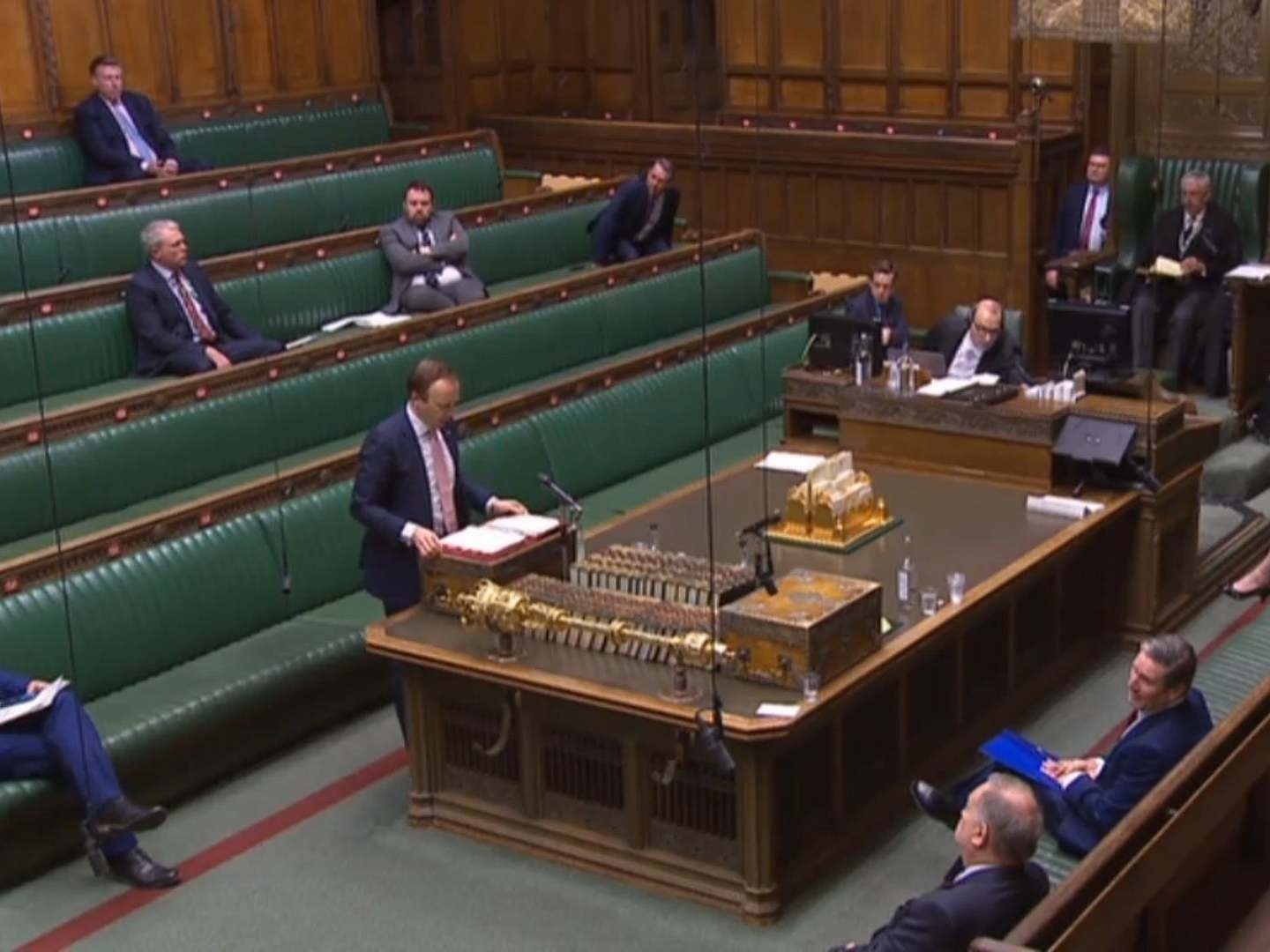How to stop politics grinding to a halt during coronavirus
Through Brexit, austerity and even war, ministers have had to find a way to get other business done, writes Sean O’Grady


Over the past decade or more British politics has approximated to a succession of monocultures. First, there was the global financial crisis and the subsequent era of austerity. That dominated the governments of Gordon Brown and the Conservative-Liberal administration led by David Cameron.
After the 2015 election through to this year, Brexit became the single unavoidable issue that drove and conditioned every other argument. Now, of course, it is the coronavirus pandemic.
Indeed, the unusual nature of this crisis has made it doubly difficult for government and parliament to function in their usual way. Remote conferencing and the “virtual” Commons have slowly replaced conventional meetings, including cabinet, and exchanges in the chamber of the Commons. Social distancing and the illness of some politicians, most obviously Boris Johnson, have certainly made it difficult to attend to anything other than the coronavirus crisis. The public would not have it any other way.
The current Domestic Abuse Bill making its way through parliament is a case in point. It was an especial cause of Theresa May, but even as prime minister her wider political problems on Brexit and around her leadership made it difficult for the bill to make enough progress to become law last year. It was one of the bills that was postponed by the (aborted) prorogation of parliament by Boris Johnson last year, and was again delayed by the dissolution of parliament for the December general election. Only now is it close to gaining full legal force, and Ms May can make a speech to the Commons via video link from her home welcoming its triumph.
One lesson perhaps is that government and parliament can get things done when the governing party enjoys a large majority, which, until now, has not been the case since 2010, or at least 2015. Even at a time of almost all-encompassing crisis, this safe one-party majority, as now, means that the government can also, for example, make some progress on the future UK-EU trade talks. The fact that they are going badly is not due so much to the pressure of work on ministers as because of the fundamental differences between the sides and the usual array of intractable problems. In other words, even if there was no coronavirus crisis and the prime minister had been able to give Brexit his undivided attention since February, the chances are that the parties would still be no closer to agreement now.
Still, there will be projects lost, ideas shelved and investigations postponed while Covid-19 excludes so much else. The respective health and science select committees, for example, now preoccupied with the pandemic, could be exploring the future of social care or the UK’s dependence on Chinese technology and post-Brexit industrial prowess. Without coronavirus, ministers and opposition parties would be making speeches and issuing policy documents on a much broader front. There’s little opportunity now for blue sky thinking from think tanks or politicians getting much traction. The same applies to each of the devolved administrations of Scotland, Wales and Northern Ireland, given their responsibilities during the public health emergency.
The chances are that Covid-19 will indeed influence affairs long after the first waves have passed. Coronavirus may prove a persistent foe, never to be eradicated, with herd immunity never achieved for long. The damage to the public finances will take some years to repair.
Our political institutions have always been able to do more than one thing at once. Even during the time of total war, Churchill’s government, albeit once the darkest hours had passed, was able to establish the post-war welfare state, including the NHS, and a new education system. At the same time, the Labour Party framed a massive programme of nationalisation and the retreat from India. All were implemented by the Attlee government after 1945; but first, there was a war to win. It feels a little like that now.
Join our commenting forum
Join thought-provoking conversations, follow other Independent readers and see their replies
Comments